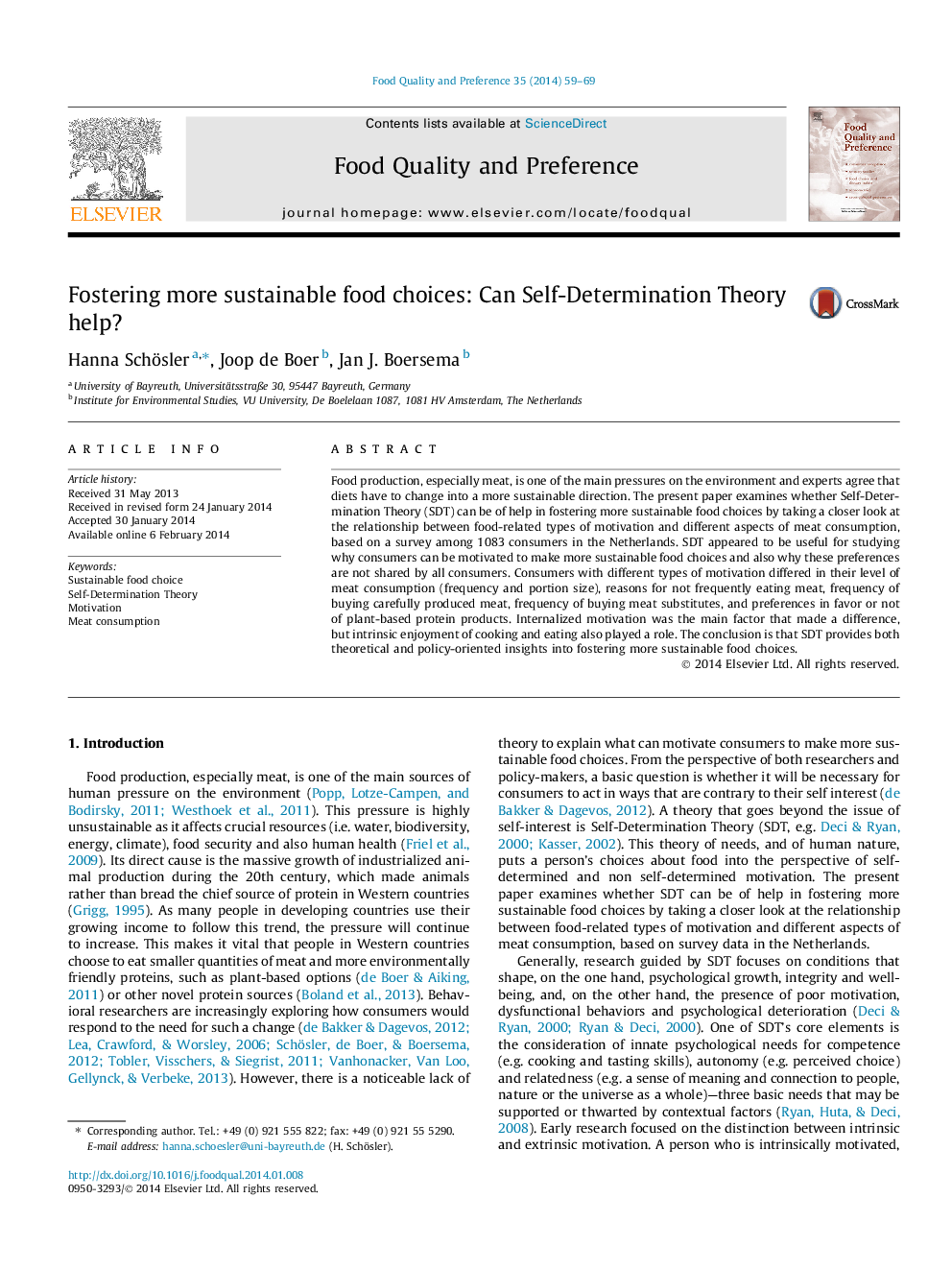| Article ID | Journal | Published Year | Pages | File Type |
|---|---|---|---|---|
| 4317223 | Food Quality and Preference | 2014 | 11 Pages |
•Self-Determination Theory was used to specify types of food-related motivation.•The criterion variables were different aspects of meat consumption.•Types of motivation were related to quantity and quality of meat consumption.•Internalized motivation was the main factor that made a difference.•Intrinsic enjoyment of cooking and eating also played a role.
Food production, especially meat, is one of the main pressures on the environment and experts agree that diets have to change into a more sustainable direction. The present paper examines whether Self-Determination Theory (SDT) can be of help in fostering more sustainable food choices by taking a closer look at the relationship between food-related types of motivation and different aspects of meat consumption, based on a survey among 1083 consumers in the Netherlands. SDT appeared to be useful for studying why consumers can be motivated to make more sustainable food choices and also why these preferences are not shared by all consumers. Consumers with different types of motivation differed in their level of meat consumption (frequency and portion size), reasons for not frequently eating meat, frequency of buying carefully produced meat, frequency of buying meat substitutes, and preferences in favor or not of plant-based protein products. Internalized motivation was the main factor that made a difference, but intrinsic enjoyment of cooking and eating also played a role. The conclusion is that SDT provides both theoretical and policy-oriented insights into fostering more sustainable food choices.
